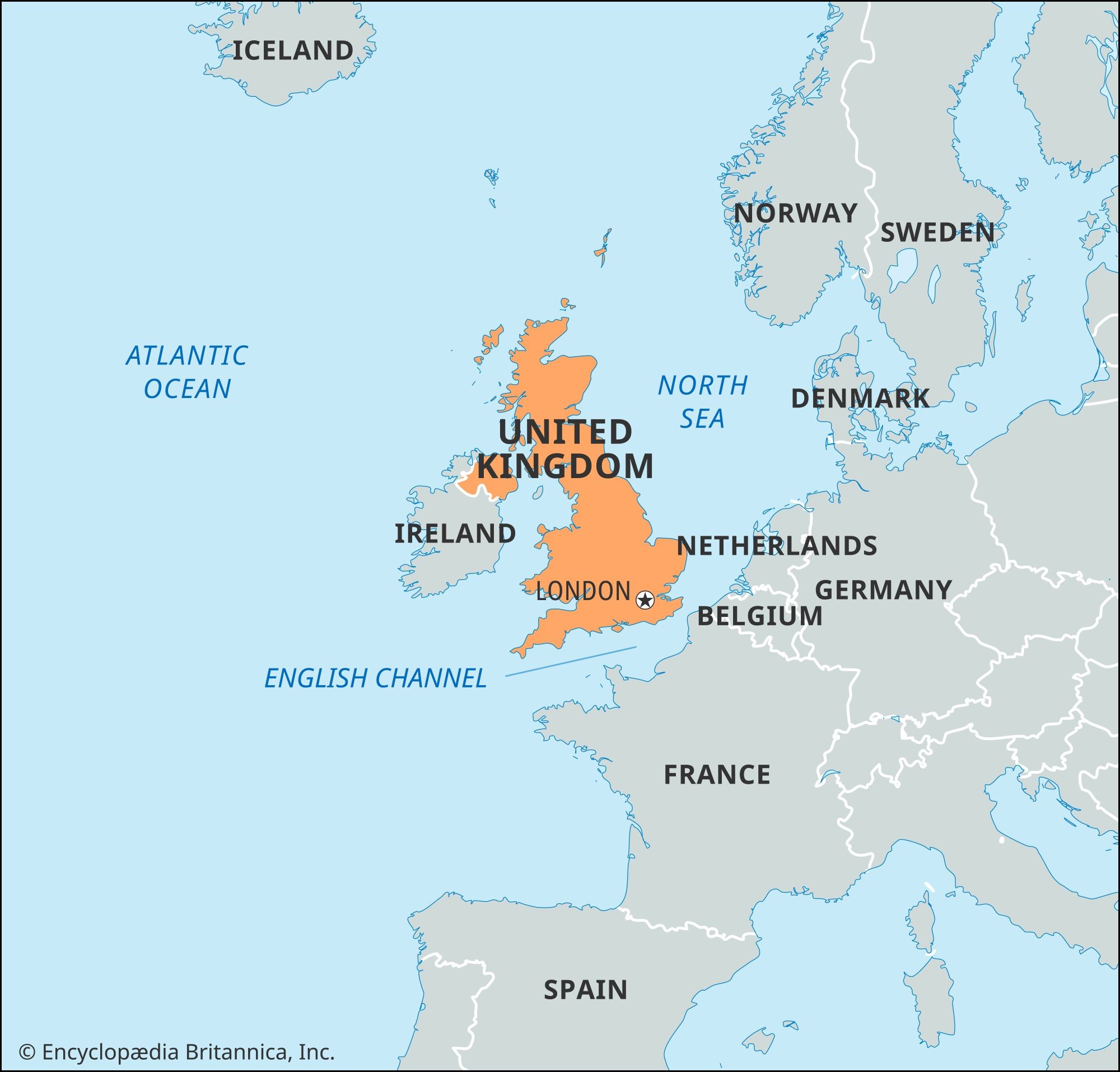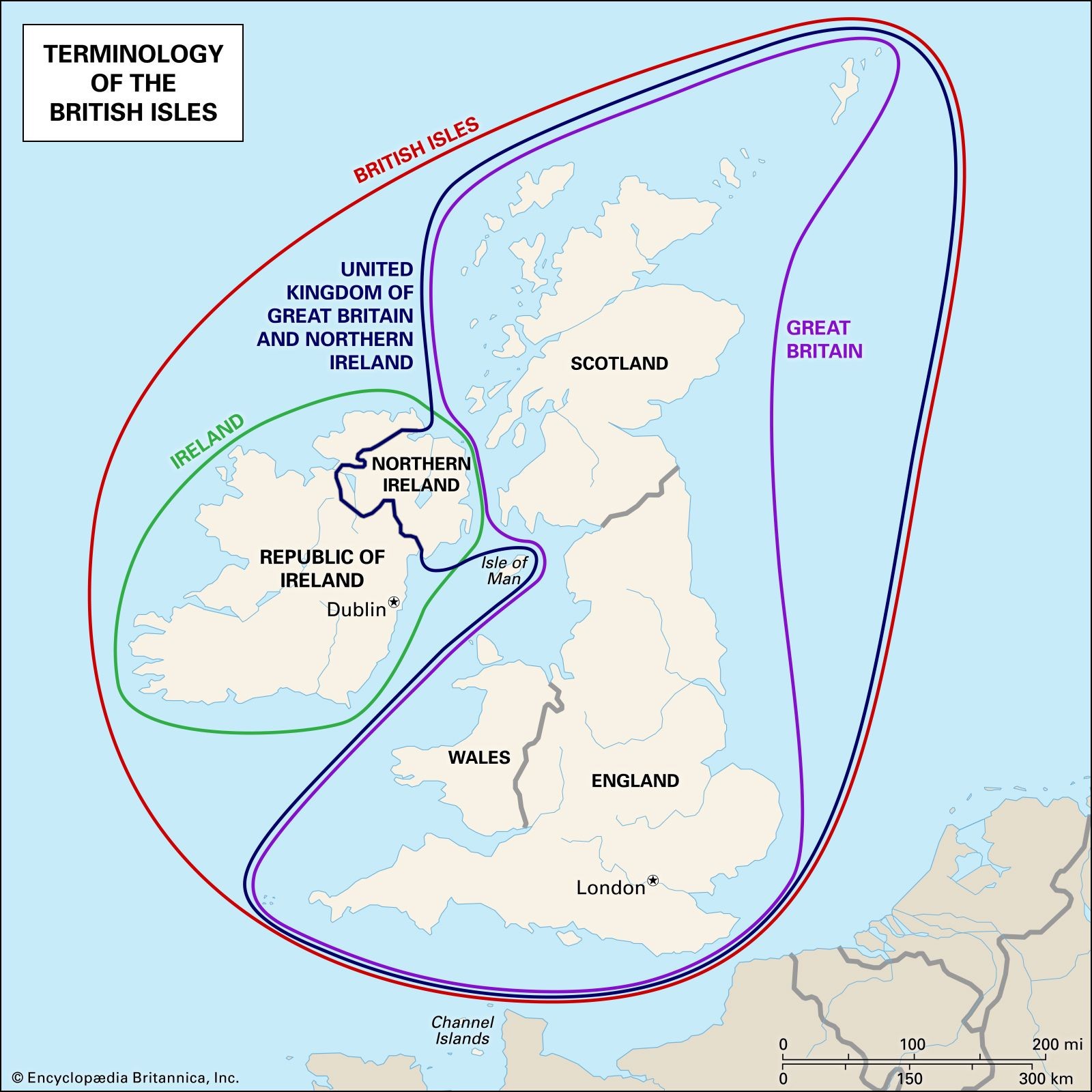Are you curious about the United Kingdom and seeking clear, concise answers? WHAT.EDU.VN offers a wealth of information. The United Kingdom is an island country located off the northwestern coast of mainland Europe, comprising England, Wales, Scotland, and Northern Ireland. We provide you with simple, reliable explanations to satisfy your curiosity and broaden your understanding of UK geography, history and culture. Delve into the intricacies of British governance, discover famous cultural landmarks, and gain insights into the UK’s influence on global affairs.
1. What Is The United Kingdom?
The United Kingdom is an island nation situated off the northwest coast of mainland Europe. It consists of four countries: England, Scotland, Wales, and Northern Ireland. Often referred to as Britain, it’s known for its rich history, diverse culture, and significant global influence.
Expanding on this, the UK is more than just a collection of islands; it’s a union with a complex past and a vibrant present. Each of its constituent countries brings a unique flavor to the overall identity of the UK. Consider these aspects:
- England: The largest country in the UK, known for its historical landmarks like Stonehenge and the Tower of London, as well as its influential cities like London and Manchester.
- Scotland: Famous for its rugged Highlands, historic castles like Edinburgh Castle, and vibrant cultural traditions such as the Highland Games and traditional music.
- Wales: Characterized by its mountainous landscape, ancient Celtic history, and a strong sense of national identity, with its own language and culture.
- Northern Ireland: A region with a complex history, known for its beautiful coastline, the Giant’s Causeway, and the city of Belfast, which played a key role in the Industrial Revolution.
The UK’s system of government is a constitutional monarchy, meaning the Monarch (currently King Charles III) is the head of state, but their powers are largely symbolic. The UK Parliament, located in London, holds the legislative power. This blend of tradition and modern governance contributes to the UK’s distinctive character.
2. Which Countries Are Part of the United Kingdom?
The United Kingdom comprises four countries: England, Scotland, Wales, and Northern Ireland. These countries, each with their own distinct history and culture, united to form the UK we know today.
To better understand the composition of the United Kingdom, let’s explore each country individually:
- England: Located in the central and southern part of Great Britain, England is the most populous country in the UK and home to London, the capital city. Its history is rich, having been shaped by Roman rule, Anglo-Saxon kingdoms, and the Norman Conquest.
- Scotland: Situated in the northern third of Great Britain, Scotland is renowned for its stunning Highlands, lochs, and historic cities like Edinburgh and Glasgow. It has a unique cultural identity, with traditions such as the wearing of kilts and playing bagpipes.
- Wales: Located to the west of England, Wales is a land of mountains, valleys, and a dramatic coastline. It has a strong Celtic heritage, with the Welsh language still widely spoken. Cardiff is the capital city.
- Northern Ireland: Occupying the northeastern part of the island of Ireland, Northern Ireland shares a border with the Republic of Ireland. Its history has been marked by conflict, but it is now a region of peace and growing prosperity, with Belfast as its capital.
Understanding this composition is essential for grasping the nuances of British identity, culture, and politics.
3. What is the Capital City of the United Kingdom?
The capital city of the United Kingdom is London. This bustling metropolis serves as the UK’s political, economic, and cultural center, attracting millions of visitors each year.
London’s significance extends beyond its role as the capital. It’s a global hub for finance, commerce, and the arts. Here’s why London is so important:
- Political Center: Home to the Houses of Parliament, Buckingham Palace, and other key government buildings, London is where the UK’s laws are made and its government operates.
- Economic Powerhouse: London’s financial district, known as the City, is one of the world’s leading financial centers. The city is home to the London Stock Exchange and numerous international banks and corporations.
- Cultural Hub: London boasts world-class museums, theaters, and music venues. From the British Museum to Shakespeare’s Globe, there’s something for everyone.
- Tourist Destination: Iconic landmarks like the Tower of London, Big Ben, and the London Eye draw visitors from around the globe.
London’s diverse population, its historical landmarks, and its role in global affairs make it a truly unique and important city.
4. How Is The Government of the United Kingdom Structured?
The government of the United Kingdom operates as a constitutional monarchy with a parliamentary system. This means that while there is a monarch (King Charles III), their power is largely symbolic, and the real political power resides in Parliament.
Here’s a breakdown of the key components:
- The Monarch: The monarch is the head of state but acts on the advice of the government. Their duties include opening Parliament, approving legislation, and representing the UK on the world stage.
- Parliament: This is the legislative branch of the UK government, consisting of two houses:
- House of Commons: Members of Parliament (MPs) are elected by the public to represent their constituencies. The party with the majority of MPs forms the government.
- House of Lords: This is an unelected body consisting of hereditary peers, life peers appointed by the monarch, and bishops of the Church of England. It reviews and amends legislation passed by the House of Commons.
- The Prime Minister: The leader of the party with the majority in the House of Commons becomes the Prime Minister, the head of government. They are responsible for leading the country and making important policy decisions.
- The Cabinet: The Prime Minister appoints a Cabinet of senior ministers who are responsible for specific areas of government, such as finance, foreign affairs, and health.
- The Judiciary: The UK has an independent judiciary that interprets and applies the law. The Supreme Court is the highest court of appeal.
This structure ensures a balance of power, with the monarch, Parliament, and the judiciary all playing distinct roles in governing the country.
5. What Is the Role of the British Monarchy in the United Kingdom?
The British Monarchy plays a largely symbolic but still significant role in the United Kingdom. While the monarch no longer holds direct political power, they perform important ceremonial and representational duties.
Here are some of the key functions of the British Monarchy:
- Head of State: The monarch is the head of state, representing the UK at home and abroad.
- National Symbol: The monarch is a symbol of national unity and pride.
- Ceremonial Duties: The monarch performs numerous ceremonial duties, such as opening Parliament, awarding honors, and hosting state visits.
- Advisory Role: The monarch has the right to be consulted, to encourage, and to warn the government.
- Head of the Commonwealth: The monarch is the head of the Commonwealth, a voluntary association of 54 independent countries, most of which were formerly part of the British Empire.
Despite not having direct political power, the monarchy remains an important part of British identity and tradition.
6. How Did the United Kingdom’s History Shape Its Current Form?
The United Kingdom’s history is a complex tapestry of conquests, unions, and political evolution. Its current form is a direct result of centuries of historical events that have shaped its borders, institutions, and culture.
Here’s a brief overview of key historical periods and their impact:
- Early History: From Celtic tribes to Roman rule and Anglo-Saxon kingdoms, the early history of Britain laid the foundation for the emergence of England as a dominant power.
- The Norman Conquest (1066): This pivotal event brought significant changes to English society, law, and government.
- The Acts of Union (1536 and 1707): These acts formally united Wales and Scotland with England, creating the Kingdom of Great Britain.
- The Act of Union (1800): This act united Great Britain with Ireland, forming the United Kingdom of Great Britain and Ireland.
- The Irish War of Independence (1919-1921): This conflict led to the partition of Ireland and the creation of Northern Ireland, which remained part of the UK.
- The 20th Century: The UK played a major role in both World Wars and experienced significant social and political changes, including the decline of its empire and the rise of a welfare state.
These historical events have shaped the UK’s political system, its cultural identity, and its place in the world.
7. What Are Some Famous Cultural Landmarks in the United Kingdom?
The United Kingdom is home to a wealth of famous cultural landmarks, reflecting its rich history and diverse culture. These landmarks attract millions of tourists each year and serve as symbols of British identity.
Here are some of the most iconic cultural landmarks in the UK:
- Stonehenge: A prehistoric monument in Wiltshire, England, consisting of a ring of standing stones. Its purpose remains a mystery, but it is believed to have been a religious site.
- The Tower of London: A historic castle in London that has served as a royal palace, a prison, and a treasury. It is home to the Crown Jewels.
- Buckingham Palace: The official residence of the British monarch in London. It is a symbol of the monarchy and a popular tourist attraction.
- The Houses of Parliament: The seat of the UK Parliament in London. Its iconic clock tower, Big Ben, is a symbol of British democracy.
- Edinburgh Castle: A historic fortress in Edinburgh, Scotland, that dominates the city skyline. It has played a key role in Scottish history.
- The Giant’s Causeway: A natural rock formation in Northern Ireland consisting of thousands of interlocking basalt columns. It is a UNESCO World Heritage Site.
These are just a few examples of the many cultural landmarks that make the United Kingdom such a fascinating and historically significant country.
8. How Does the United Kingdom’s Economy Function?
The United Kingdom has a highly developed, mixed economy. It is the fifth-largest economy in the world by nominal GDP and the ninth-largest by purchasing power parity.
Here’s an overview of the key sectors of the UK economy:
- Services: The service sector accounts for the majority of the UK’s GDP. This includes finance, business services, tourism, and retail.
- Manufacturing: While manufacturing has declined in recent decades, it remains an important sector, producing goods such as automobiles, aerospace equipment, and pharmaceuticals.
- Energy: The UK has significant reserves of oil and gas in the North Sea, as well as a growing renewable energy sector.
- Agriculture: Agriculture accounts for a small percentage of the UK’s GDP, but it is an important part of the rural economy.
The UK is a major trading nation, with its main exports including manufactured goods, fuels, and financial services. London is a global financial center, attracting investment and talent from around the world.
9. What Are Some Key Traditions and Holidays Celebrated in the United Kingdom?
The United Kingdom has a rich tapestry of traditions and holidays, reflecting its diverse history and culture. These traditions and holidays are celebrated throughout the UK, bringing people together and reinforcing a sense of national identity.
Here are some of the key traditions and holidays celebrated in the UK:
- Christmas: Celebrated on December 25th, Christmas is a major holiday in the UK. Traditions include decorating Christmas trees, exchanging gifts, and enjoying a festive meal.
- Easter: A Christian holiday celebrating the resurrection of Jesus Christ. Traditions include Easter egg hunts and eating hot cross buns.
- Guy Fawkes Night: Celebrated on November 5th, Guy Fawkes Night commemorates the failed Gunpowder Plot of 1605. Traditions include bonfires, fireworks, and burning effigies of Guy Fawkes.
- Remembrance Day: Observed on November 11th, Remembrance Day honors the members of the armed forces who have died in the line of duty. Traditions include wearing poppies and observing a two-minute silence.
- Burns Night: Celebrated on January 25th, Burns Night commemorates the birth of Scottish poet Robert Burns. Traditions include eating haggis, reciting Burns’ poetry, and drinking Scotch whisky.
- Pantomime: A uniquely British theatrical tradition, particularly popular during the Christmas season. Pantomimes are musical comedy stage productions, loosely based on well-known fairy tales. They typically include audience participation, slapstick humor, and cross-dressing.
These are just a few examples of the many traditions and holidays that are celebrated in the United Kingdom.
10. How Does the United Kingdom Influence Global Politics and Culture Today?
Despite its relatively small size, the United Kingdom continues to exert a significant influence on global politics and culture. Its historical legacy, its membership in international organizations, and its cultural exports all contribute to its global reach.
Here are some of the ways in which the UK influences global politics and culture today:
- International Organizations: The UK is a permanent member of the United Nations Security Council and a member of the G7, the G20, and the Commonwealth. It plays a key role in shaping international policy on issues such as climate change, security, and development.
- Soft Power: The UK has a strong “soft power,” which is the ability to influence others through culture and ideas. British music, film, television, and literature are popular around the world.
- The English Language: English is the global language of business, science, and technology. The UK, as the birthplace of the English language, has a significant advantage in the global marketplace of ideas.
- Education: The UK is home to some of the world’s leading universities, attracting students from around the globe. These universities produce influential research and train future leaders.
- Diplomacy: The UK has a well-established diplomatic network, with embassies and consulates in countries around the world. It plays an active role in resolving international conflicts and promoting democracy.
The UK’s influence on global politics and culture is likely to continue for many years to come.
FAQ: United Kingdom
| Question | Answer |
|---|---|
| Is the UK part of Europe? | Geographically, yes, the UK is part of Europe. However, politically, it is no longer a member of the European Union, having voted to leave in 2016. |
| What currency is used in the UK? | The currency used in the UK is the pound sterling (£). |
| What is the climate like in the UK? | The UK has a temperate maritime climate, with mild winters and cool summers. Rainfall is common throughout the year. |
| What are some popular foods in the UK? | Popular foods in the UK include fish and chips, afternoon tea, full English breakfast, Sunday roast, and various pies (e.g., steak and kidney pie, shepherd’s pie). |
| What is the population of the UK? | As of 2025 estimates, the population of the United Kingdom is approximately 69.4 million. |
| What are the main religions in the UK? | Christianity is the largest religion in the UK, but there are also significant Muslim, Hindu, Jewish, and Sikh communities. |
| What is the official language of the UK? | English is the official language of the UK, but Welsh, Scottish Gaelic, and Irish are also spoken in certain regions. |
| What is Brexit? | Brexit refers to the United Kingdom’s withdrawal from the European Union. |
| What is the NHS? | The NHS stands for the National Health Service, the publicly funded healthcare system of the United Kingdom. |
| What is the BBC? | The BBC stands for the British Broadcasting Corporation, the public service broadcaster of the United Kingdom. It is the world’s oldest national broadcasting organization and one of the largest broadcasters by number of employees. |


Exploring British Culture
British culture is known around the world and admired by many. Literature, music, fashion and sport are some of the cornerstones of the cultural identity of the United Kingdom.
The UK and the World
The UK’s location has always made it an important place for trade. Its impact on the world economically, politically and culturally are still felt today.
Visiting the UK
The UK has many exciting and historic places for travellers to visit. From royal palaces to ancient monuments and busy cities to beautiful countryside, there is something for all travellers.
Do you have more questions about the United Kingdom or any other topic? Don’t hesitate to ask! At WHAT.EDU.VN, we’re dedicated to providing you with quick, accurate, and free answers to all your queries. Our platform connects you with a knowledgeable community ready to assist you. Stop struggling to find information and start getting the answers you deserve. Visit what.edu.vn today and ask your question! We are located at 888 Question City Plaza, Seattle, WA 98101, United States. You can also reach us via Whatsapp at +1 (206) 555-7890.
